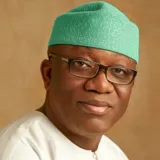07 June 2024
UK-Africa relationship must be equitable, create structural shift: experts
Academics, diplomats and policy practitioners recently came together at King’s to debate the future of the UK-Africa relationship.
The UK needs to build a long-term partnership with Africa that supports African interests and is not just a donor-recipient relationship, Labour shadow minister for Africa, Lyn Brown has told an audience at King’s.
She added that UK is in a strong position to help tackle two of the biggest barriers to African success: the debt crisis and conflicts.
The UK can help mitigate this debt, she said, which is made up largely of sovereign bonds.
The country can also actively support African solutions on peace and “act sooner in crisis situations”, she added.
The event aimed to explore the complex dynamics surrounding UK-Africa relations with a focus on the future with attention to immediate, mid- and long-term priorities.
A number of leading academics, diplomats and policy practitioners discussed the future of the UK-Africa relationship at the debate, jointly organised by the African Leadership Centre (ALC) at King’s and the Labour African Network (LAN).
LAN is a voice for Africans within the UK Labour Party.
The lecture was followed by a debate on the question of ‘What should the future UK-Africa relationship look like? Priorities, collaboration and agency’.
The central question of whether African nations can be at the centre of UK’s strategic engagement with the continent underpinned a discussion about charting a new direction in UK-Africa relations.
Zambian High Commissioner to the UK, Ambassador Machenje Mazoka, argued that the UK must use all international policy tools as positive levers for a structural shift to make UK-Africa relations equitable, whilst Professor Medhane Tadesse from ALC noted that “post-Brexit UK foreign policy has not shifted to accommodate Africa enough”.
Peace and security in Africa will be an investment for Britain and British businesses, said Ambassador Manoah Esipisu, High Commissioner of Kenya to the UK.
However, he added that the UK must not focus “solely on improving markets” but should “work to alleviate the oppressive environment” in which markets are allowed to operate.
Ambassador Linda Scott, Namibian High Commissioner to the UK, said the UK should also come forward, to discuss future partnerships on green hydrogen production with Namibia, where Lithium and rare minerals have been discovered.
The panel also included Dr Kayode Fayemi, Former Governor of Ekiti State, Nigeria, Ambassador Shimane Kealotswe, Botswana's High Commissioner to the UK, Emma Ruiters, researcher at the Tony Blair Institute for Government and Professor Karuti Kanyinga, Director of the Institute for Development Studies (IDS), University of Nairobi.




